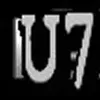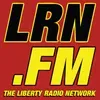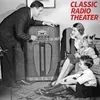National Alliance Radio Network
Experience the National Alliance Radio Network, offering alternative talk radio with a controversial edge. Explore provocative topics and perspectives. Stream now.

Listen National Alliance Radio Network
National Vanguard | News. For us. For a change.
https://nationalvanguard.org/
Country: The United States Of America
Languages: English
National Alliance Radio Network: A Controversial Voice in American Media
The National Alliance Radio Network, based in the United States, stands out as a highly controversial station known for its alternative, extremist, and talk radio genres. Broadcasting in English, the station has gained a substantial following among listeners who align with its far-right political ideologies.
Founded in the early 1990s by William Pierce, a prominent white supremacist and neo-Nazi activist, the National Alliance Radio Network was established as a response to what Pierce perceived as a biased mainstream media landscape. Pierce’s vision was to create a platform that offered a perspective he believed was being suppressed by traditional news outlets.
The station’s programming features a variety of shows with provocative and extreme viewpoints. Programs such as "American Dissident Voices," "The White Voice," and "National Vanguard" cover topics including race, immigration, and anti-Semitism. The content of these shows is often characterized by views that many consider offensive and deeply hateful.
Despite its controversial nature, the National Alliance Radio Network has managed to maintain a dedicated listener base that supports its extremist views. The station has attracted criticism from civil rights organizations and other groups that argue it serves as a platform for hate speech and extremist rhetoric.
The National Alliance Radio Network has also faced significant scrutiny from law enforcement and government agencies. Notably, in 2002, the FBI raided the station's headquarters in West Virginia during an investigation into alleged criminal activities. William Pierce, the station’s founder, passed away the same year, and the network has since been operated by new management.
The station remains a divisive force in American media, continuing to broadcast its messages of white supremacy and anti-immigrant sentiment to a niche but committed audience. Its presence underscores ongoing debates about the boundaries of free speech and the role of extremist media in shaping public discourse.
The National Alliance Radio Network, based in the United States, stands out as a highly controversial station known for its alternative, extremist, and talk radio genres. Broadcasting in English, the station has gained a substantial following among listeners who align with its far-right political ideologies.
Founded in the early 1990s by William Pierce, a prominent white supremacist and neo-Nazi activist, the National Alliance Radio Network was established as a response to what Pierce perceived as a biased mainstream media landscape. Pierce’s vision was to create a platform that offered a perspective he believed was being suppressed by traditional news outlets.
The station’s programming features a variety of shows with provocative and extreme viewpoints. Programs such as "American Dissident Voices," "The White Voice," and "National Vanguard" cover topics including race, immigration, and anti-Semitism. The content of these shows is often characterized by views that many consider offensive and deeply hateful.
Despite its controversial nature, the National Alliance Radio Network has managed to maintain a dedicated listener base that supports its extremist views. The station has attracted criticism from civil rights organizations and other groups that argue it serves as a platform for hate speech and extremist rhetoric.
The National Alliance Radio Network has also faced significant scrutiny from law enforcement and government agencies. Notably, in 2002, the FBI raided the station's headquarters in West Virginia during an investigation into alleged criminal activities. William Pierce, the station’s founder, passed away the same year, and the network has since been operated by new management.
The station remains a divisive force in American media, continuing to broadcast its messages of white supremacy and anti-immigrant sentiment to a niche but committed audience. Its presence underscores ongoing debates about the boundaries of free speech and the role of extremist media in shaping public discourse.
Similar Stations
- WALMWALM
- Infowars

- NPR 24 Hour Program Stream

- Rense Radio Network

- AP Radio News

- Infowars.com Live Events

- Science Zone

- VOA Persian TV (Voice)

- Republic Broadcasting Network

- The Ultimate Art Bell

- Radio Paradise Mellow Mix AAC 320k

- The Very Best Of Art Bell (U7 Radio)

- Alex Jones - Infowars

- RenseRense
- Advent Radio - Art Bell Stream

- Rense Radio NetworkRense Radio Network
- War Room With Owen Shroyer - Infowars

- WBAP "News Talk 820" Fort Worth, TX

- WAMU 88.5 - American University Radio - Washington, DC

- WCPT 820 Willow Springs, IL

- TNT Radio live

- 181.FM - Comedy Club

- TWiT Live

- SomaFM BAGeL Radio

- LRN.FM The Liberty Radio Network

- Infowars

- The Blaze radio

- Radio Hamrah رادیو همراهRadio Hamrah رادیو همراه
- WCBM 680

- DKFM Shoegaze RadioDKFM Shoegaze Radio
- 181.FM - 90's Alternative

- NPR 24 Hour Program Stream

- Infowars AAC Stream

- Rense Radio Network

- Patriot Radio Classics

- Free Talk Live 64k

- 100hitz - Indie

- Truckers Radio USA

- 105.9 FM WMAL

- No Agenda Show Stream (pls)No Agenda Show Stream (pls)
- Jupiter Broadcasting Live

- WXRV "92.5 The River" Andover, MA

- WKCR 89.9 Columbia University - New York, NY

- KOPB 91.5 Oregon Public Broadcasting - Portland, OR

- WKNR 850 Cleveland

- Liberty News Radio

- Classic Radio Theater

- American Voice Radio Network (AVRN) 1

- First Amendment RadioFirst Amendment Radio
- Into The Parabnormal
